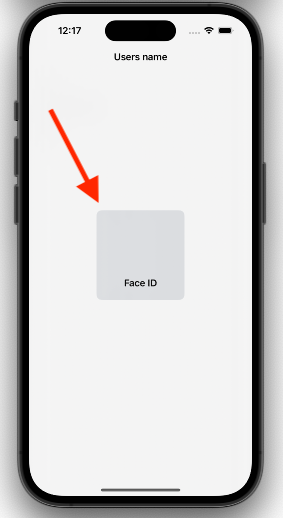Working code of Touch ID & Face ID LocalAuthentication (swift 4.0 & 5.0+ Code)
Note : Privacy - Face ID Usage Description key add in Info.plist
Use
self.Authenticate { (success) in
print(success)
}
Local Authentication Function
import LocalAuthentication
func Authenticate(completion: @escaping ((Bool) -> ())){
//Create a context
let authenticationContext = LAContext()
var error:NSError?
//Check if device have Biometric sensor
let isValidSensor : Bool = authenticationContext.canEvaluatePolicy(.deviceOwnerAuthenticationWithBiometrics, error: &error)
if isValidSensor {
//Device have BiometricSensor
//It Supports TouchID
authenticationContext.evaluatePolicy(
.deviceOwnerAuthenticationWithBiometrics,
localizedReason: "Touch / Face ID authentication",
reply: { [unowned self] (success, error) -> Void in
if(success) {
// Touch / Face ID recognized success here
completion(true)
} else {
//If not recognized then
if let error = error {
let strMessage = self.errorMessage(errorCode: error._code)
if strMessage != ""{
self.showAlertWithTitle(title: "Error", message: strMessage)
}
}
completion(false)
}
})
} else {
let strMessage = self.errorMessage(errorCode: (error?._code)!)
if strMessage != ""{
self.showAlertWithTitle(title: "Error", message: strMessage)
}
}
}
Handle Error Codes with Messages
//MARK: TouchID error
func errorMessage(errorCode:Int) -> String{
var strMessage = ""
switch errorCode {
case LAError.Code.authenticationFailed.rawValue:
strMessage = "Authentication Failed"
case LAError.Code.userCancel.rawValue:
strMessage = "User Cancel"
case LAError.Code.systemCancel.rawValue:
strMessage = "System Cancel"
case LAError.Code.passcodeNotSet.rawValue:
strMessage = "Please goto the Settings & Turn On Passcode"
case LAError.Code.biometryNotAvailable.rawValue:
strMessage = "TouchI or FaceID DNot Available"
case LAError.Code.biometryNotEnrolled.rawValue:
strMessage = "TouchID or FaceID Not Enrolled"
case LAError.Code.biometryLockout.rawValue:
strMessage = "TouchID or FaceID Lockout Please goto the Settings & Turn On Passcode"
case LAError.Code.appCancel.rawValue:
strMessage = "App Cancel"
case LAError.Code.invalidContext.rawValue:
strMessage = "Invalid Context"
default:
strMessage = ""
}
return strMessage
}
Show alert message
//MARK: Show Alert
func showAlertWithTitle( title:String, message:String ) {
let alert = UIAlertController(title: title, message: message, preferredStyle: .alert)
let actionOk = UIAlertAction(title: "OK", style: .default, handler: nil)
alert.addAction(actionOk)
self.present(alert, animated: true, completion: nil)
}


evaluatePolicy. You will understand for yourself why returns are failing. – Despumate